
Enchanting Andasibe: The Heartbeat of Madagascar's Rainforest
Nestled amidst the lush rainforests of Madagascar, Andasibe is a haven for nature lovers and adventure seekers alike. Known for its rich biodiversity, Andasibe offers visitors a chance to experience some of the most unique wildlife on the planet. The star attraction here is undoubtedly the Andasibe-Mantadia National Park, home to the largest lemur species, the Indri. Their haunting calls echo through the forest, creating an otherworldly atmosphere that captivates the senses. Andasibe is not just about lemurs; the park also boasts a variety of other fascinating creatures, including chameleons, frogs, and countless bird species. The lush, verdant landscape is perfect for guided walks, where you can learn about the intricate ecosystem that thrives here. For those with a penchant for adventure, night walks offer a glimpse into the nocturnal world of Madagascar's wildlife. Apart from its natural wonders, Andasibe is also a gateway to Malagasy culture. The local village provides a glimpse into traditional lifestyles, with opportunities to engage with the community and understand their customs. The warm hospitality of the locals, combined with the breathtaking scenery, makes Andasibe a must-visit destination for anyone exploring Madagascar.
Local tips in Andasibe
- Bring sturdy walking shoes for exploring the national park's trails.
- Pack insect repellent to stay comfortable during your hikes.
- Hire a local guide for an enriched experience and to spot more wildlife.
- Plan a night walk to see nocturnal animals in their natural habitat.
- Visit the local village to experience Malagasy culture and hospitality.
Enchanting Andasibe: The Heartbeat of Madagascar's Rainforest
Nestled amidst the lush rainforests of Madagascar, Andasibe is a haven for nature lovers and adventure seekers alike. Known for its rich biodiversity, Andasibe offers visitors a chance to experience some of the most unique wildlife on the planet. The star attraction here is undoubtedly the Andasibe-Mantadia National Park, home to the largest lemur species, the Indri. Their haunting calls echo through the forest, creating an otherworldly atmosphere that captivates the senses. Andasibe is not just about lemurs; the park also boasts a variety of other fascinating creatures, including chameleons, frogs, and countless bird species. The lush, verdant landscape is perfect for guided walks, where you can learn about the intricate ecosystem that thrives here. For those with a penchant for adventure, night walks offer a glimpse into the nocturnal world of Madagascar's wildlife. Apart from its natural wonders, Andasibe is also a gateway to Malagasy culture. The local village provides a glimpse into traditional lifestyles, with opportunities to engage with the community and understand their customs. The warm hospitality of the locals, combined with the breathtaking scenery, makes Andasibe a must-visit destination for anyone exploring Madagascar.
When is the best time to go to Andasibe?
Iconic landmarks you can’t miss
Isalo National Park
Explore Isalo National Park, Madagascar's gem of rugged landscapes, unique wildlife, and rich cultural heritage, perfect for every adventure seeker.
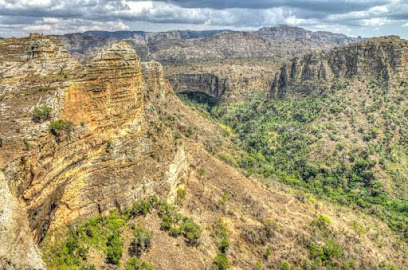
Réserve spéciale d'Analamazoatra
Explore the breathtaking Analamazoatra Special Reserve, a sanctuary for Madagascar's unique wildlife and stunning landscapes, perfect for nature lovers.
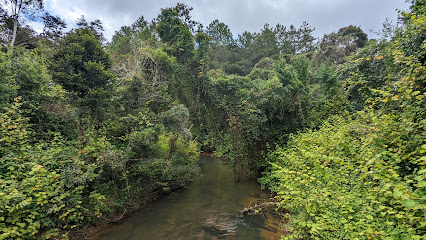
Queen's Palace
Explore the majestic Queen's Palace in Antananarivo, a heritage museum showcasing Madagascar's royal history and cultural treasures.
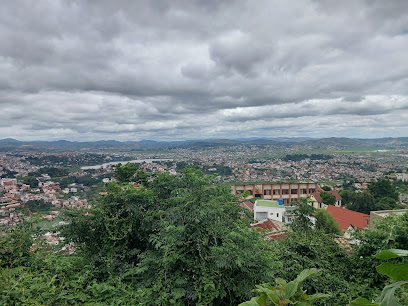
Ranomafana National Park
Discover the unparalleled beauty and biodiversity of Ranomafana National Park, Madagascar's treasure trove of wildlife and lush rainforests.
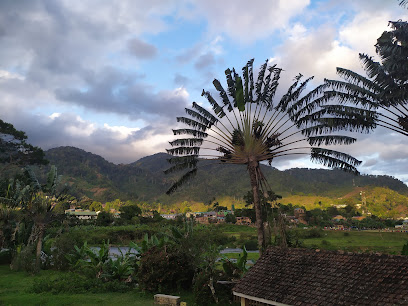
Vakona Forest Lodge
Experience the tranquility of nature at Vakona Forest Lodge, your gateway to Madagascar's lush rainforests and unique wildlife encounters.
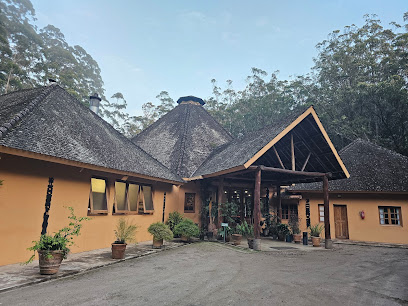
Andasibe-Mantadia National Park
Discover Andasibe-Mantadia National Park, a lush paradise in Madagascar, celebrated for its wildlife diversity and breathtaking landscapes.
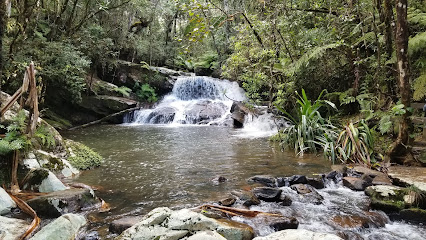
Tsingy De Bemaraha National Park
Discover the unique limestone formations and biodiversity of Tsingy De Bemaraha National Park, Madagascar's UNESCO World Heritage gem.
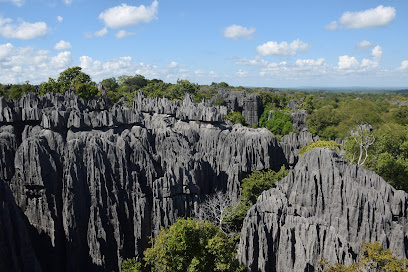
Hotel Feon' ny Ala
Discover the perfect blend of comfort and local cuisine at Hotel Feon' ny Ala in Andasibe, your gateway to Madagascar's stunning wildlife.
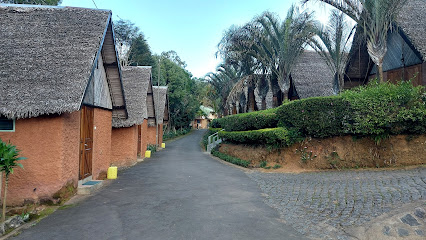
Réserve Peyrieras Madagascar Exotic
Explore Réserve Peyrieras Madagascar Exotic - A captivating sanctuary showcasing Madagascar's unique wildlife and biodiversity.
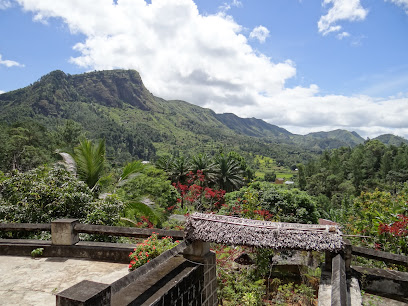
Rovan' Ambohimanga
Discover the historical allure of Rovan' Ambohimanga, a UNESCO World Heritage Site showcasing Madagascar's royal heritage and breathtaking landscapes.
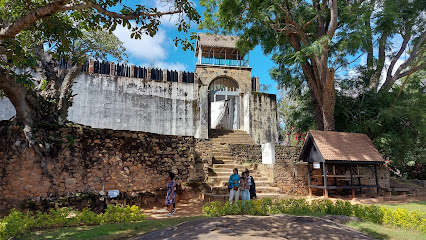
Mantadia Lodge
Experience unparalleled luxury and nature at Mantadia Lodge, your gateway to Madagascar's breathtaking landscapes and wildlife.

Montagne D'Ambre nationalpark
Explore the biodiversity of Montagne D'Ambre National Park, a natural haven in Madagascar with stunning landscapes and unique wildlife.
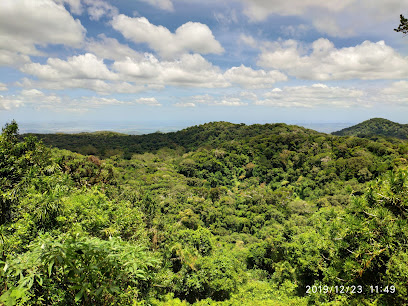
Réserve spéciale d’Ankarana
Explore the breathtaking Ankarana Special Reserve, a national park in Madagascar known for its unique limestone formations and rich biodiversity.
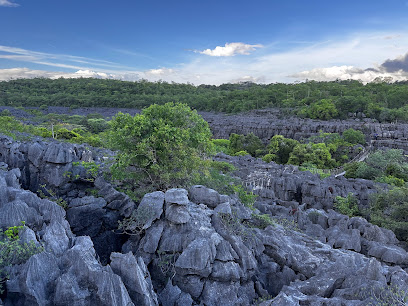
ANDASIBE LEMURS LODGE
Experience the enchanting beauty of Madagascar at Andasibe Lemurs Lodge, your gateway to the island's unique wildlife and lush landscapes.
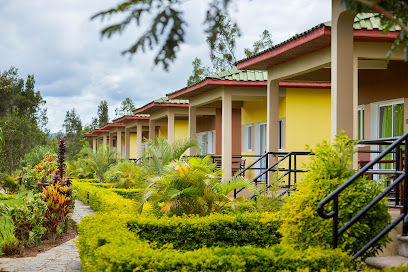
Cathedrale catholique d Andohalo
Discover the breathtaking beauty and historical significance of the Cathedrale catholique d'Andohalo in Antananarivo, Madagascar.
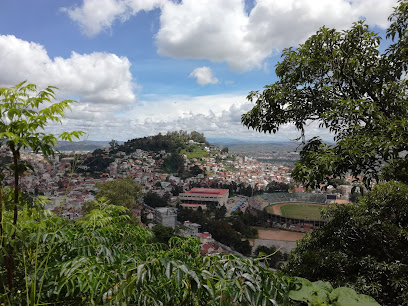
Unmissable attractions to see
Réserve spéciale d'Analamazaotra
Explore the stunning biodiversity of Analamazaotra Special Reserve, home to unique wildlife and lush landscapes in Madagascar's natural paradise.
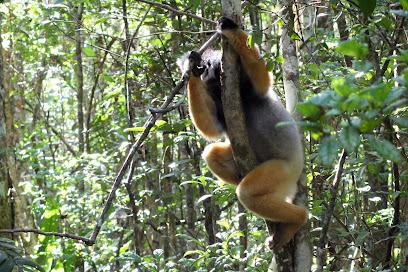
Andasibe-Mantadia National Park
Explore the rich biodiversity of Andasibe-Mantadia National Park, a paradise for nature lovers and wildlife enthusiasts in Madagascar.
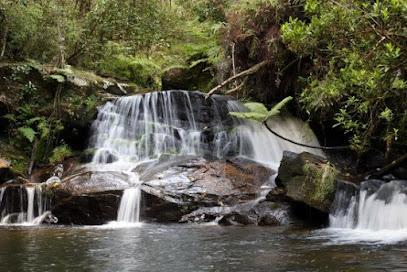
Réserve Peyrieras Madagascar Exotic
Discover Madagascar's unique wildlife at Réserve Peyrieras, a captivating park and zoo in Marozevo showcasing the island's incredible biodiversity.
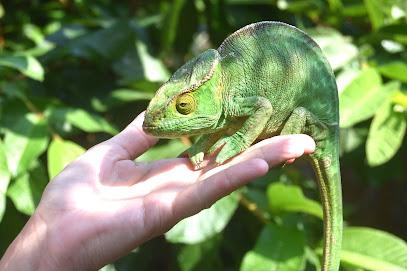
Vakôna Lemur Island
Experience the wonder of Madagascar at Vakôna Lemur Island, where you can interact with playful lemurs and explore nature's beauty.
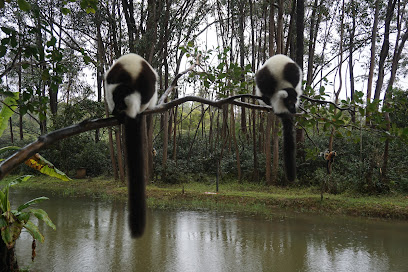
Parc National Andasibe Mantadia
Explore the lush rainforests and diverse wildlife of Parc National Andasibe Mantadia, a must-visit gem in Madagascar's natural beauty.
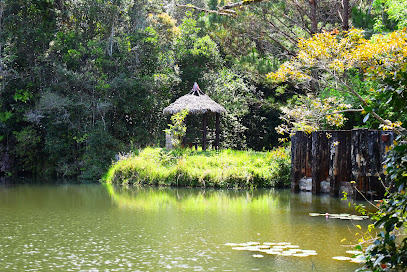
Parc Mitsinjo
Explore the captivating Parc Mitsinjo in Madagascar, a sanctuary of wildlife and lush landscapes, perfect for nature lovers and eco-tourists.
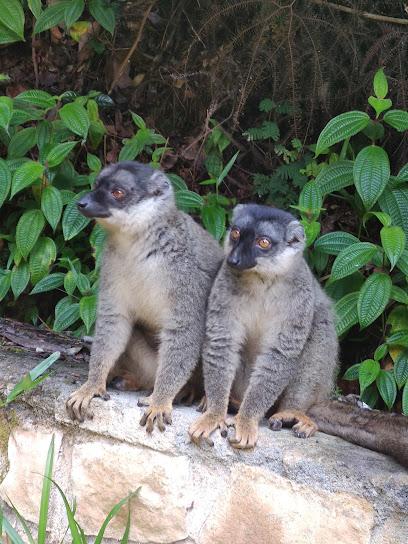
Crocodile Valley
Discover the captivating wildlife of Crocodile Valley, a serene nature preserve in Madagascar known for its stunning crocodile population and rich biodiversity.
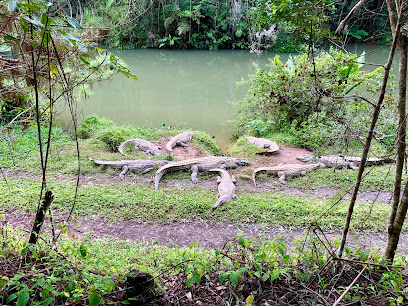
Parc Mitsinjo
Explore the lush wilderness of Parc Mitsinjo, a biodiversity hotspot in Madagascar, offering a unique glimpse into the island's extraordinary wildlife and natural beauty.
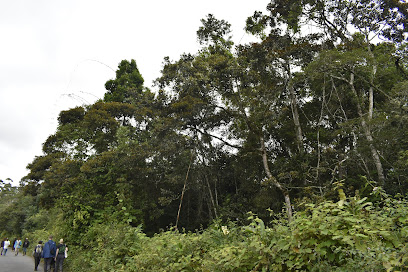
V.O.I M.M.A Visit Park
Discover the serene beauty of V.O.I M.M.A Visit Park in Andasibe, a haven for nature lovers and a perfect retreat in Madagascar's lush landscapes.
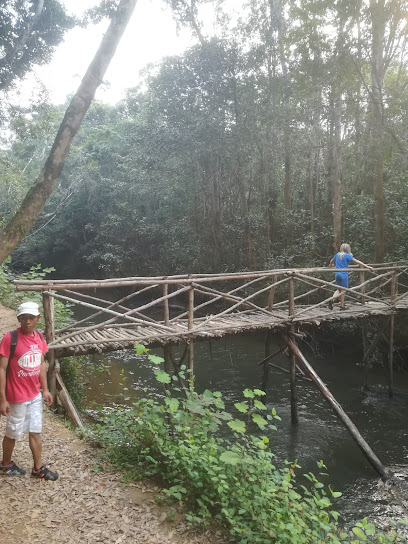
Mahajery
Explore Mahajery in Moramanga, a captivating tourist attraction showcasing Madagascar's rich culture, stunning landscapes, and vibrant biodiversity.

BARRAGE
Explore Barrage, a stunning tourist attraction in Madagascar, offering breathtaking landscapes and a serene escape into nature's beauty.

Maromaniry Nature Park
Discover the breathtaking beauty and biodiversity of Maromaniry Nature Park in Madagascar, a serene retreat for nature lovers and adventure seekers.

Riri
Explore Riri, a stunning tourist attraction in Madagascar, where lush landscapes and vibrant culture await your adventure.

Project Manondroala
Explore the stunning biodiversity and lush landscapes of Project Manondroala in Andasibe, Madagascar, a must-visit tourist attraction for nature lovers.
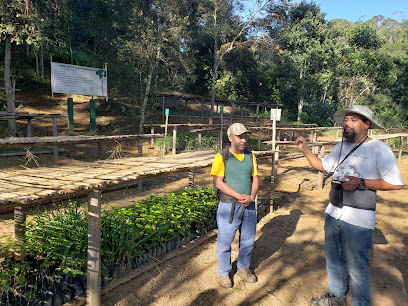
Parc orchidée Andasibe
Explore the breathtaking beauty of Parc Orchidée Andasibe, a paradise of orchids and wildlife in the heart of Madagascar's lush landscapes.

Essential places to dine
Réserve spéciale d'Analamazoatra
Explore Madagascar's rich biodiversity at Réserve spéciale d'Analamazoatra, home to unique wildlife including Indri lemurs in stunning rainforest settings.
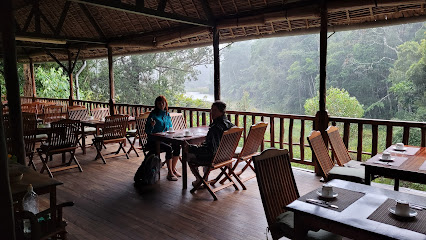
Relais des Plateaux Hotel & Spa
Experience unparalleled luxury at Relais des Plateaux Hotel & Spa, where relaxation meets exquisite dining amidst Madagascar's natural beauty.
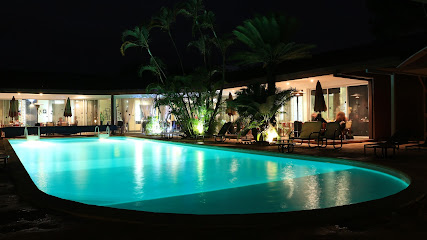
Hotel Restaurant La Varangue
Discover the unique blend of retro charm and modern comfort at Hotel Restaurant La Varangue in Antananarivo.

Vakona Forest Lodge
Discover Madagascar's wilderness at Vakona Forest Lodge - your gateway to nature adventures and unique wildlife encounters.
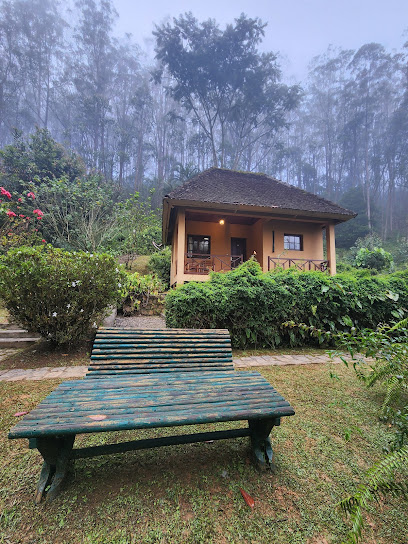
Andasibe-Mantadia National Park
Discover Madagascar's Andasibe-Mantadia National Park: A Biodiversity Hotspot with Unique Wildlife Experiences Awaiting You.
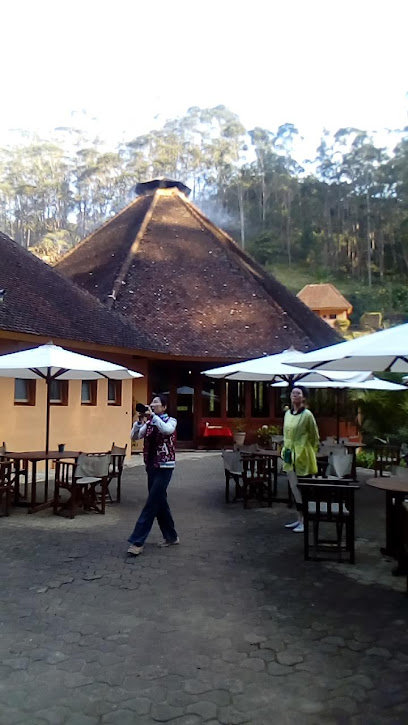
Nerone Ristorante Italiano (Madagascar)
Experience authentic Italian cuisine at Nerone Ristorante Italiano in Antananarivo - where flavor meets tradition.
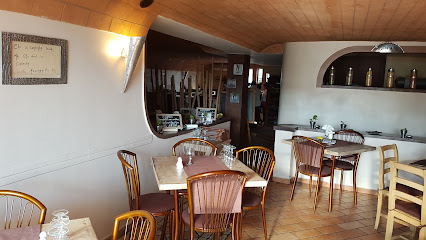
Le Carnivore - Restaurant Bar Lounge
Experience the vibrant flavors of Madagascar at Le Carnivore - Antananarivo's top restaurant bar lounge offering exquisite dishes and a lively atmosphere.
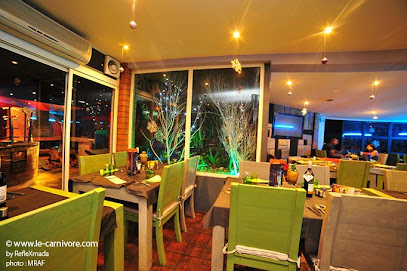
Hotel Feon' ny Ala
Discover delightful dining and cozy accommodations at Hotel Feon' ny Ala in Andasibe – your gateway to Madagascar's natural wonders.

Mantadia Lodge
Discover the serene beauty of Madagascar at Mantadia Lodge - where nature meets luxury in an unforgettable escape.

Restaurant Les Artistes
Discover authentic Malagasy cuisine at Restaurant Les Artistes in Antananarivo—where tradition meets creativity in every dish.
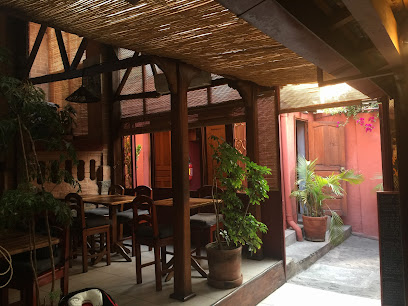
L'Oriental Ivandry
Discover the rich tastes of Lebanon at L'Oriental Ivandry in Antananarivo—an unforgettable Mediterranean dining experience awaits.
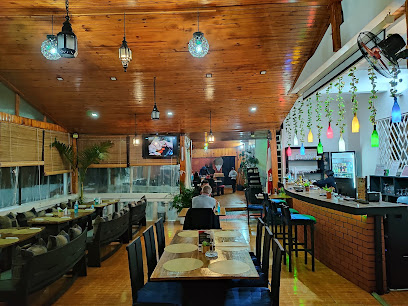
Marais Restaurant Madagascar
Experience exquisite haute French cuisine in Antananarivo at Marais Restaurant Madagascar - where elegance meets local flavors.
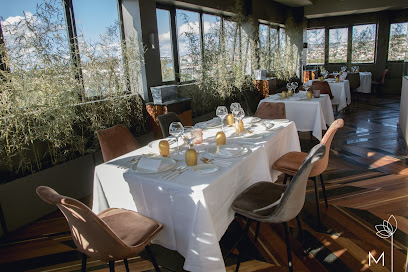
FLY INN Madagascar Hôtel
Discover comfort and culture at FLY INN Madagascar Hôtel - your gateway to exploring Antananarivo's vibrant lifestyle.
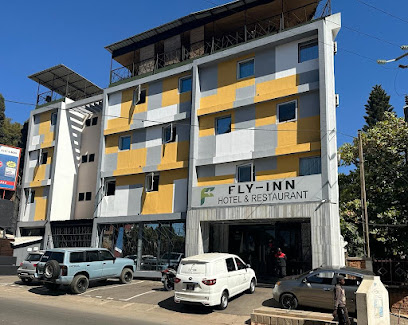
Le Combava
Discover the flavors of Madagascar at Le Combava – where exquisite dining meets warm hospitality in Antananarivo.
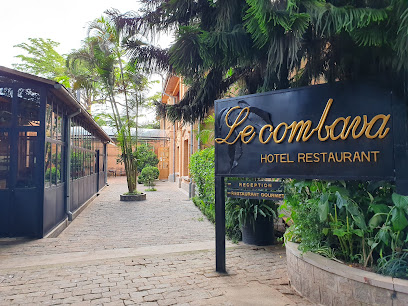
L'ORION RESTAURANT
Discover exquisite flavors at L'ORION RESTAURANT in Antananarivo, where traditional Malagasy cuisine meets international delights.
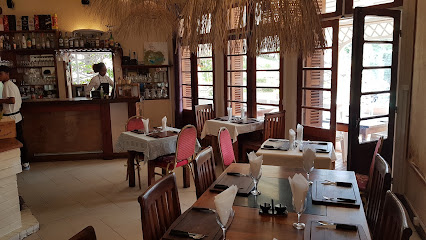
Markets, malls and hidden boutiques
NC shop NAZMI COOL
Explore local flavors at NAZMI COOL, Antananarivo's premier grocery store, featuring fresh produce and traditional Malagasy products.
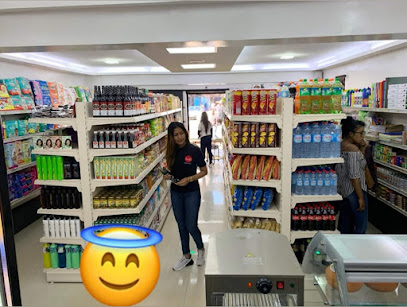
ETS SARIAKA
Discover the essential hardware supplies at ETS SARIAKA in Moramanga, Madagascar, where quality meets local craftsmanship.
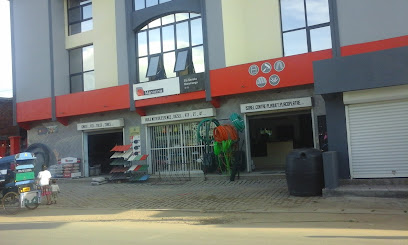
Fyara boutique de Souvenir
Explore Fyara Boutique de Souvenir in Talatamaty, Madagascar, for unique, handcrafted keepsakes that celebrate the island's rich culture and artistry.
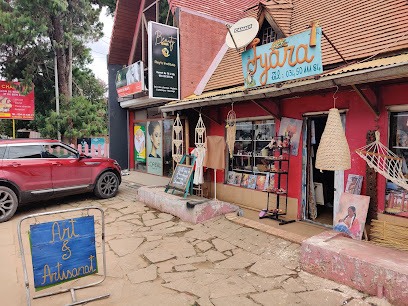
Depot
Depot Pharmacy in Perinet offers essential health products and medications for tourists, ensuring your wellbeing while exploring Madagascar's beauty.

Velo's Handicraft Shop
Explore Velo's Handicraft Shop in Perinet for unique Malagasy gifts and authentic craftsmanship reflecting the rich culture of Madagascar.
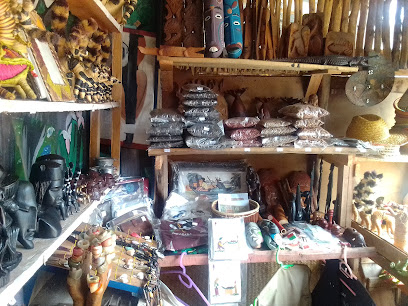
Indritech Internet Café &Shop
Discover the perfect blend of shopping and connectivity at Indritech Internet Café & Shop in Andasibe, Madagascar.

Entre Nous Ankorondrano
Discover unique, handcrafted souvenirs at Entre Nous Ankorondrano, your go-to gift shop in the heart of Antananarivo, Madagascar.
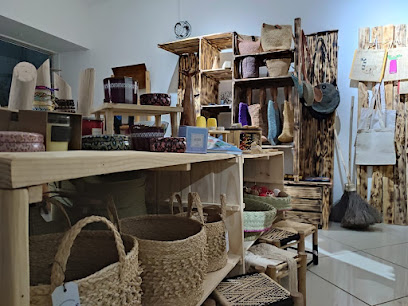
SUNRISE SHOP
Discover local flavors and products at Sunrise Shop, the charming grocery store in Moramanga that showcases Madagascar's culinary delights.

Art Crafts - Association Peasants of Andasibe
Explore the rich cultural artistry of Madagascar at Art Crafts - Association Peasants of Andasibe, where every purchase supports local artisans.
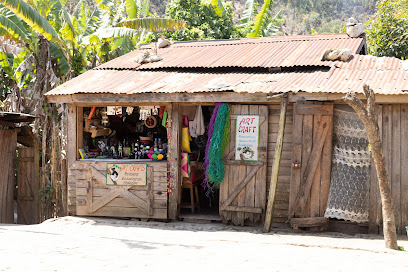
Mega Bazar
Explore Mega Bazar in Andasibe for an authentic taste of Madagascar's local culture and fresh culinary delights.

جنتي وصلطن
Discover the heart of Andasibe through fresh produce, local spices, and a vibrant grocery experience at جنتي وصلطن.

Misy
Discover the vibrant culture of Madagascar at Misy, a charming kiosk in Andasibe offering delicious local snacks and a warm community atmosphere.

Boucherie Halal d'Andasibe
Experience the finest halal meats in Andasibe at Boucherie Halal d'Andasibe, where quality meets local tradition.

VOLAMIHAJA
Explore VOLAMIHAJA, a unique children's clothing store offering stylish and affordable outfits, reflecting vibrant local culture and community spirit.

FOREVER
Discover the essence of Madagascar at Forever, Antananarivo's charming gift shop filled with unique handcrafted souvenirs and local treasures.
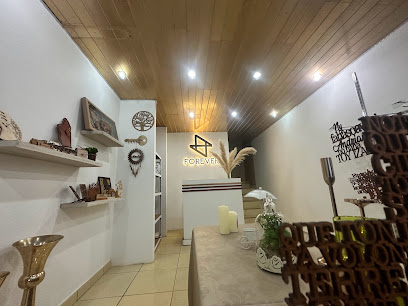
Essential bars & hidden hideouts
Hotel Feon' ny Ala
Hotel Feon' ny Ala: A comfortable sanctuary in Andasibe, blending hospitality with the rich flavors of Madagascar's cuisine amid stunning natural beauty.
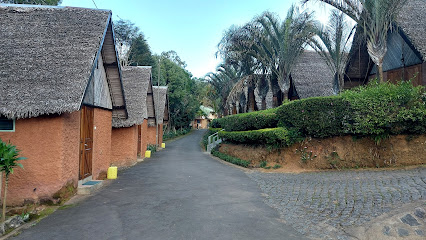
Andasibe Hotel - Andasibe/Mantadia Park
Discover a serene retreat at Andasibe Hotel, your gateway to Madagascar's captivating biodiversity and lush landscapes.

Vane Resto
Discover authentic Malagasy flavors at Vane Resto in Andasibe, where every meal is a celebration of local cuisine and culture.
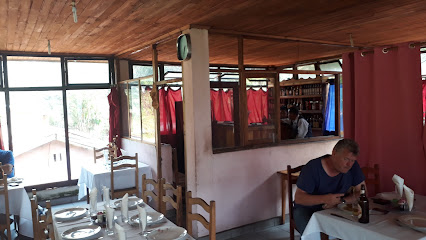
Old 7 bar
Discover the heart of Antananarivo's nightlife at Old 7 Bar, a vibrant spot for drinks, music, and unforgettable memories.
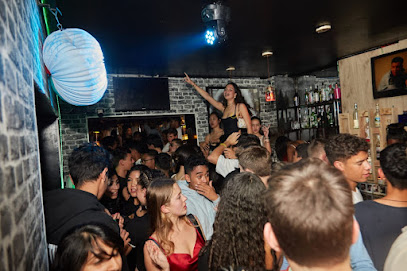
Varun Resto Snack Bar Mini Market
Experience the authentic flavors of Madagascar at Varun Resto Snack Bar Mini Market in Moramanga, where local cuisine meets warm hospitality.

La T'Rasse - Bivouac
Discover La T'Rasse - Bivouac, the perfect bar in Moramanga to relax and enjoy local drinks amidst a vibrant atmosphere.

Smooth GASY Restaurant Lounge Bar
Experience the lively atmosphere of Smooth GASY Restaurant Lounge Bar in Ampitatafika, where delicious cuisine meets vibrant entertainment.

Epi-bar TARATRA
Experience the vibrant nightlife of Andriampamaky at Epi-bar TARATRA, where local flavors and culture come alive.

ANIA BOUTIK
Discover the lively spirit of Antananarivo at Ania Boutik, a must-visit pub for drinks, local flavors, and vibrant entertainment.

NextBrew
Discover the vibrant atmosphere and local flavors at NextBrew, a cozy bar in Antananarivo offering a unique drinking experience.

Epi-Bar PAS Si PRÈS
Experience the vibrant nightlife of Antananarivo at Epi-Bar PAS Si PRÈS, where local flavors and lively ambiance come together.
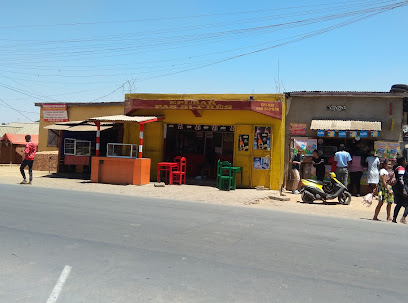
Épi-bar Papay
Discover the vibrant flavors of Madagascar at Épi-bar Papay, a unique bar and grocery store in the heart of Antananarivo.

BAR NADIA
Discover the lively spirit of Antananarivo at Bar Nadia, where local culture, vibrant drinks, and a welcoming atmosphere come together.

giuan
Discover the lively spirit of Ambanja at Giuan Bar, your perfect destination for local flavors and vibrant nightlife in Madagascar.

Local Phrases
-
- HelloSalama
[sa-la-ma] - GoodbyeVeloma
[ve-lo-ma] - YesEny
[e-ny] - NoTsia
[tsi-a] - Please/You're welcomeAzafady
[a-za-fa-dy] - Thank youMisaotra
[mi-sa-ot-ra] - Excuse me/SorryAzafady
[a-za-fa-dy] - How are you?Manao ahoana ianao?
[ma-nao a-wa-na ya-nao] - Fine. And you?Tsara. Ary ianao?
[tsa-ra. a-ry ya-nao] - Do you speak English?Miteny Anglisy ianao?
[mi-te-ny ang-li-sy ya-nao] - I don't understandTsy mahay
[tsi ma-ha-y]
- HelloSalama
-
- I'd like to see the menu, pleaseTe-hahita ny taratasy menio, azafady
[te-ha-hi-ta ny ta-ra-ta-sy me-ni-o, a-za-fa-dy] - I don't eat meatTsy misy hena aho
[tsi mi-sy he-na a-hu] - Cheers!Mazotoa!
[ma-zo-to-a] - I would like to pay, pleaseTe-hahazo mankany, azafady
[te-ha-ha-zo man-ka-ni, a-za-fa-dy]
- I'd like to see the menu, pleaseTe-hahita ny taratasy menio, azafady
-
- Help!Fanontaniana!
[fa-non-ta-nia-na] - Go away!Miova!
[mi-o-va] - Call the Police!Mangataka ny Polisy!
[ma-nga-ta-ka ny po-li-sy] - Call a doctor!Mangataka dokotera!
[ma-nga-ta-ka do-ko-te-ra] - I'm lostEfa nifandray aho
[e-fa ni-fan-dra-y a-hu] - I'm illMiaraka amin'ny aretina aho
[mi-a-ra-ka a-min-ny a-re-ti-na a-hu]
- Help!Fanontaniana!
-
- I'd like to buy...Te-hahazo mivarotra...
[te-ha-ha-zo mi-va-rot-ra] - I'm just lookingMiangavy aho
[mi-an-ga-vy a-hu] - How much is it?Ohatra ny vidin'ity?
[o-ha-tra ny vi-di-ni-ty] - That's too expensiveMahatsiaro loatra
[ma-ha-tsi-a-ro lo-a-tra] - Can you lower the price?Azafady ahoana ny vidin'ity?
[a-za-fa-dy a-wa-na ny vi-di-ni-ty]
- I'd like to buy...Te-hahazo mivarotra...
-
- What time is it?Inona no ora?
[i-no-na no o-ra] - It's one o'clockIsaora iray
[i-sa-o-ra i-rai] - Half past (10)Efapolo sy folo
[e-fa-po-lo si fo-lo] - MorningMaraina
[ma-ra-i-na] - AfternoonAloha
[a-lo-ha] - EveningHariva
[ha-ri-va] - YesterdayOmaly
[o-ma-ly] - TodayAnio
[a-ni-o] - TomorrowAndroany
[an-dro-a-ny] - 1Iray
[i-rai] - 2Roa
[ro-a] - 3Telo
[te-lo] - 4Efatra
[e-fa-tra] - 5Dimy
[di-my] - 6Enina
[e-ni-na] - 7Fitambaranay
[fi-tam-ba-ra-na-i] - 8Valo
[va-lo] - 9Sivy
[si-vy] - 10Folo
[fo-lo]
- What time is it?Inona no ora?
-
- Where's a/the...?Aiza ny...
[ai-za ni] - What's the address?Inona ny adiresy?
[i-no-na ny a-di-re-sy] - Can you show me (on the map)?Azafady, mety hahita aho (amin'ny saritany)?
[a-za-fa-dy, me-ty ha-hi-ta a-hu (a-min-ny sa-ri-ta-ni)] - When's the next (bus)?Aiza ny farany (bus)?
[ai-za ni fa-ra-ni (bus)] - A ticket (to ....)Fandrosoana (ho...)
[fan-dro-so-a-na (ho)]
- Where's a/the...?Aiza ny...
History of Andasibe
-
The history of Andasibe begins with the early settlement of indigenous Malagasy people. The region is home to the Betsimisaraka ethnic group, who have lived in harmony with the dense rainforests for centuries. Their culture, traditions, and way of life are deeply intertwined with the natural environment.
-
In the late 19th century, Madagascar became a French colony, and the area of Andasibe was no exception. The French brought with them new administrative structures, infrastructure, and changes to the local way of life. The remnants of colonial architecture and influence can still be seen in the town and surrounding areas.
-
One of the most significant events in the recent history of Andasibe was the establishment of Andasibe-Mantadia National Park in 1989. This park was created to protect the unique biodiversity of the region, including the iconic Indri lemurs. The park has since become a crucial site for conservation efforts and eco-tourism.
-
Over the past few decades, Andasibe has become a hub for ecotourism. The local community has embraced tourism as a means of economic development while promoting sustainable practices. The influx of visitors has led to the development of lodges, guided tours, and conservation programs, all aimed at preserving the natural heritage of the area.
-
Andasibe is known for its vibrant cultural festivals that celebrate the local heritage. One such event is the 'Famadihana,' or 'Turning of the Bones,' a traditional Malagasy ceremony that honors ancestors. These festivals offer a glimpse into the rich cultural tapestry of the region and are a significant aspect of life in Andasibe.
Andasibe Essentials
-
Andasibe is located approximately 150 kilometers east of Antananarivo, the capital of Madagascar. The most convenient way to reach Andasibe is by car or taxi from Antananarivo, which takes around 3 to 4 hours depending on traffic and road conditions. There are also regular taxi-brousse (shared minibuses) services that run between Antananarivo and Andasibe, offering an affordable option for travelers. For those seeking a more private and comfortable journey, hiring a private driver or arranging a tour from Antananarivo is recommended.
-
Once in Andasibe, the primary mode of transportation is walking, as many of the attractions are within close proximity. For longer distances, local taxis and bicycle rentals are available. Additionally, guided tours often include transportation to and from key sites such as the Andasibe-Mantadia National Park. It’s advisable to confirm transportation arrangements in advance, especially during peak tourist seasons.
-
The official currency in Madagascar is the Malagasy Ariary (MGA). While some hotels and restaurants in Andasibe may accept credit cards, it is highly recommended to carry cash, especially for smaller establishments and markets. ATMs are limited in Andasibe, so it is wise to withdraw sufficient cash in Antananarivo before traveling. Exchange services are also available in the capital.
-
Andasibe is generally safe for tourists, but standard precautions should always be taken. Avoid walking alone at night and keep valuables secure. Petty theft can occur, particularly in crowded areas and markets. It’s advisable to stay in well-lit and populated areas. While Andasibe does not have specific high-crime areas targeting tourists, maintaining vigilance and being aware of your surroundings is always best practice.
-
In case of an emergency, dial 117 for police assistance and 124 for medical emergencies. Andasibe has a small medical clinic for minor health issues, but more serious medical cases may require transport to Antananarivo. It is strongly advised to have comprehensive travel insurance that covers medical emergencies. Pharmacies in Andasibe can provide over-the-counter medications for common ailments.
-
Fashion: Do dress modestly, particularly when visiting local villages and religious sites. Lightweight, breathable clothing is recommended due to the tropical climate. Religion: Do respect local customs and traditions. Always ask for permission before photographing people or religious ceremonies. Public Transport: Do be courteous and offer your seat to elderly passengers. Don’t eat or drink on public transport. Greetings: Do greet people with a friendly 'Salama'. A handshake is also common. Eating & Drinking: Do try local dishes and accept food offerings graciously. Don’t refuse hospitality, as it is considered impolite.
-
To experience Andasibe like a local, visit the weekly markets where you can buy fresh produce and handmade crafts. Engage with residents, as they are often welcoming and eager to share stories about their community. Don’t miss the chance to visit the Andasibe-Mantadia National Park early in the morning for the best chances of spotting the famous Indri lemurs. For a unique experience, consider staying in eco-lodges that offer guided night walks to observe nocturnal wildlife.
Trending Landmark in Andasibe
-
Isalo National Park
-
Réserve spéciale d'Analamazoatra
-
Queen's Palace
-
Ranomafana National Park
-
Vakona Forest Lodge
-
Andasibe-Mantadia National Park
-
Tsingy De Bemaraha National Park
-
Hotel Feon' ny Ala
-
Réserve Peyrieras Madagascar Exotic
-
Rovan' Ambohimanga
-
Mantadia Lodge
-
Montagne D'Ambre nationalpark
-
Réserve spéciale d’Ankarana
-
ANDASIBE LEMURS LODGE
-
Cathedrale catholique d Andohalo
Nearby Cities to Andasibe
-
Things To Do in Antananarivo
-
Things To Do in Toamasina
-
Things To Do in Antsirabe
-
Things To Do in Fianarantsoa
-
Things To Do in Manakara
-
Things To Do in Majunga
-
Things To Do in Mahajanga
-
Things To Do in Nosy Be
-
Things To Do in Mandrare River
-
Things To Do in Ifaty
-
Things To Do in Fort Dauphin
-
Things To Do in Toliara
-
Things To Do in Antsiranana
-
Things To Do in Diego Suarez
-
Things To Do in Chirongui








